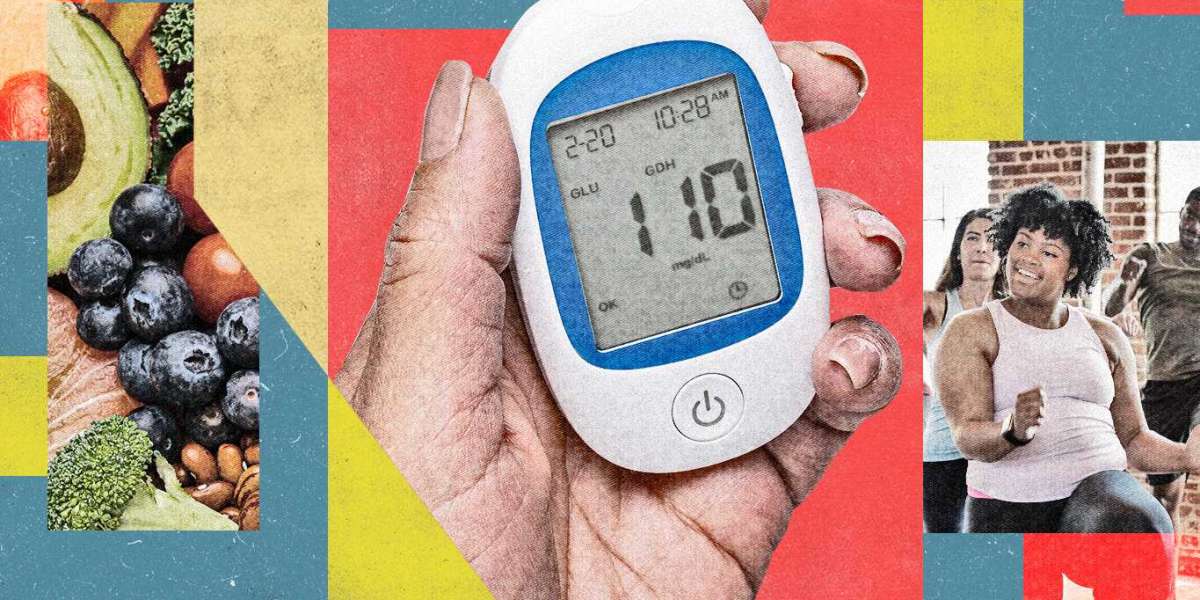The higher the degree of obesity, the greater the risk of developing insulin resistance, a condition in which cells in your body do not respond correctly to insulin. This results in higher blood sugar levels, which can lead to issues such as heart problems, kidney damage, and nerve problems if not maintained. Tackling this problem involves some lifestyle changes, the aid of a doctor, and a rekindled ambition to be healthy for the long haul.
Follow a healthy, balanced, lower-glycemic diet
Focus on Whole Foods
Eating whole, unprocessed foods stabilizes blood sugar. Include:
Lean Proteins: Chicken, fish, tofu, and legumes slow absorption of sugar.
Low Carb Vegetables: Broccoli, spinach, bell peppers (these are low carb and high fiber)
Balanced Fats These are some of the top ones: Avocado, nuts, and olive oil help you feel full longer and maintain blood sugar levels
Limit High-Glycemic Foods
Cut back on or completely avoid sugar-spiking foods such as:
Soda and sweet dessert items.
Processed (or refined) carbohydrates, such as white bread, rice, and pasta.
Increase Physical Activity
Opt for Low-Impact Exercises
Obese may find it hard to do rigorous exercises. Start with activities like:
Walking for 30 minutes daily.
Aerobics in the water (without straining the joints), swimming,
Incorporate Strength Training
The second reason why it will benefit you is that the more muscle mass we have, the better our insulin sensitivity and better glucose burning. Start with body weight or a lightweight under supervision.
Prioritize Weight Loss
At weight loss Allen TX, a small loss of 5–10% can have a dramatic effect on your blood sugar levels. For long-term weight loss, pair calorie control with exercise.
Stay Hydrated
It also flushes excess glucose through the urine and prohibits dehydration, frequent among people with high sugar levels, by drinking enough water. Drink plenty of water whenever possible. A minimum amount of at least 8 glasses.
Think through Medical Options
Medication
Your doctor may be recommending successful medicines like Metformin, which have been shown to maintain blood sugar pancreas. Keep in mind to always listen to your physician and get your levels checked often.
Bariatric Surgery
In some cases, bariatric surgery proves to be life-changing for the obese individual. So, just as with gastric bypass and other surgical procedures, this can make people insulin-sensitive and dramatically lower their blood sugars.
Manage Stress Levels
Cortisol has a blood glucose-raising effect and is a hormone released in response to chronic stress. Okay, so bring in those stress-relieving habits like:
Meditation or yoga.
Deep breathing exercises.
Pursuing hobbies or social activities.
Get Enough Sleep
Lack of proper sleep disrupts glucose metabolism and heightens the desire for sugar. Sleep for 7–9 hours of good quality sleep per night to help balance hormones and control appetite.
Monitor Blood Sugar Levels
Frequent monitoring for medical weight loss allows you to notice patterns and make adjustments if needed. A reliable glucometer is one of the best investments you can make for your health, and tracking your readings helps ensure that.
Seek Professional Guidance
A healthcare team that includes doctors, dietitians, and fitness trainers can provide you with customized recommendations based on your requirements.
Conclusion
The needs of obese individuals to cope with very high sugar levels are complex and require a combination of dietary, physical, medical, and lifestyle management. It can be a long process, but every small step is another stride towards your health and wellness. However, with the commitment and strategies to manage overall health, it is entirely possible to stabilize blood sugar levels and avoid what may seem like a doomed lifetime death sentence of living.



